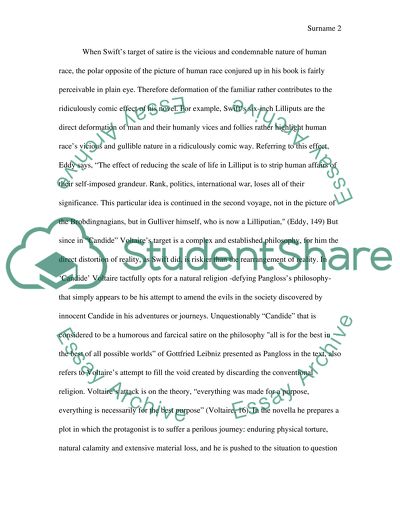Cite this document
(“Satire in Voltaire's Candide vs. Swift's Gulliver's Travel Term Paper”, n.d.)
Retrieved from https://studentshare.org/literature/1439531-compare-and-contrast-satire-in-voltaire-s-candide
Retrieved from https://studentshare.org/literature/1439531-compare-and-contrast-satire-in-voltaire-s-candide
(Satire in Voltaire's Candide Vs. Swift's Gulliver'S Travel Term Paper)
https://studentshare.org/literature/1439531-compare-and-contrast-satire-in-voltaire-s-candide.
https://studentshare.org/literature/1439531-compare-and-contrast-satire-in-voltaire-s-candide.
“Satire in Voltaire's Candide Vs. Swift's Gulliver'S Travel Term Paper”, n.d. https://studentshare.org/literature/1439531-compare-and-contrast-satire-in-voltaire-s-candide.


